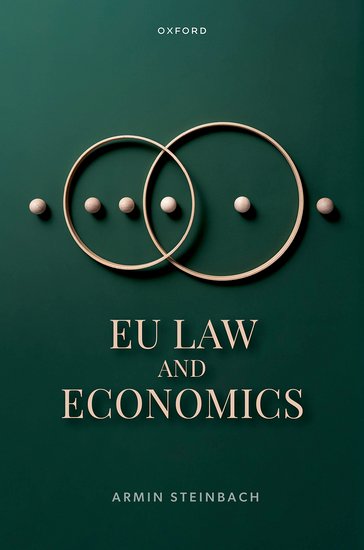EU Law and Economics
Armin STEINBACH
Availability: In stock
- Categories: For Students and Practitioners, Janvier 2025, Finance and Economic Theory
- Publisher: OUP - Oxford University Press
- ISBN: 9780198920885
- Publication Date: 12/23/2024
- Binding: Paperback
- Number of pages: 280
Summary
The intersection between law and economics is a dynamic field of
research. Yet, European law has so far not been the subject of
comprehensive, systematic economic analysis. Instead issues such as the
European debt crisis, COVID-19 pandemic, and the climate emergency have
largely escaped scholarly analysis through the nexus of EU law and
economics.
EU Law and Economics closes this gap, providing
an overview of the application of economics to the institutional,
procedural, and substantive aspects of European law. Drawing on various
branches of the economic sciences - including rational choice and game
theory, and institutional and behavioural economics - this book goes
beyond conventional methods of EU legal scholarship to expand our
understanding of EU law and its effects. This book devotes attention to
EU Treaties and secondary law, as well as their adjudicative
interpretation, while using economic theory to explain their core legal
principles such as conferral, subsidiarity, and mutual recognition.
Systematic
and original, this book offers additional descriptive and normative
metrics that expand our understanding of the decision-making behaviour
of EU institutions and member states, while opening a new dialogue
between two distinct disciplines.
This is an open access title
available under the terms of a CC BY-NC-ND 4.0 International licence. It
is free to download from OUP and selected open access locations
Table of contents
1:Meandering between rational choice, realism, constructivism, and institutionalism
2:A cursory review of economic methods
"Part II.
3:What states and EU institutions care about
4:The logic of barter trade: Rational choice and constitutional economics
5: Reducing transaction costs
6: Supplying public goods and addressing external effects
7:Leveraging economies of scale
8:Why cooperation fails
"Part III.
9:Membership of EU Treaties
10:Centralization
11:Flexibility
12:Non-consensual EU law
13:Legislative choices
14:Enforcement
Part IV. Who Cooperates under EU Law
15:The European Council and Council of Ministers
16:The European Parliament
17:The European Court of Justice
18:The European Central Bank
19:The European Commission
20:Adjudication
Part V. What to Cooperate on in the EU
21:European Public Goods
22:Internal market: economic integration
23:Economic and Monetary Union
